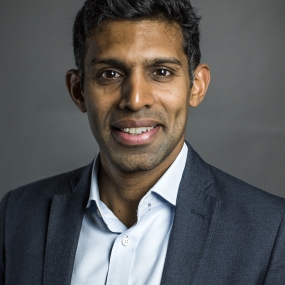Clinical Leader Buddy Scheme
The Clinical Leaders in Anaesthesia Network (CLAN) has been finalising the details about a “Buddy Scheme” for some time and had introduced the concept at the annual CLAN webinar in Nov 2021. We would like to take this opportunity to provide further details about this scheme which is a new, no cost initiative supported by the RCoA. The Buddy scheme aims to facilitate peer to peer support for clinical leaders in anaesthesia, critical care and pain medicine. We are asking both - individuals in leadership roles who are looking for guidance or advice (“clinical leaders”) and those with relevant experience & inclination to provide guidance & advice to be a “Buddy” to contact cd@rcoa.ac.uk to register their interest stating:
- whether they want to be a Buddy or the one buddied
- what is their current level is? i.e. head, CD etc'
- how many years have they been in post
- would they like a buddy within their region/out of region.
- any specific needs they would want their buddy to be aware of?
Background:
Leadership in the NHS can be a lonely and daunting task, with numerous ongoing and evolving challenges especially in the recent era of post Covid-19. Whilst there are numerous leadership and management courses for healthcare professionals, few to our knowledge focus on the practicalities of everyday senior leadership in anaesthesia, critical care and or pain. These include advice or guidance in areas such as job planning, recruitment, how to manage a difficult anaesthetist/colleague. Extensive feedback from our members is that clinicians starting in roles such service lead, head of department or clinical director either learn on the job, “learn the hard way”, receive ad hoc support from an existing clinical leader and or “phone a friend”. Generally, the consensus is that support mechanisms are not always available easily.
The scheme:
The Buddy Scheme is to meet and match a newly appointed clinical leader with a senior clinician in an existing leadership position or one with previous leadership experience from another trust (The buddy). The two can then develop a relationship outlining their needs and potential ongoing relationship. This would be informal guidance and advice on an ad hoc basis. Of note the Buddy does not need to have any formal mentorship or coaching experience. RCoA will be able to signpost individuals who have volunteered to be a “Buddy” to appropriate resources.
The Buddy Scheme: Key Points
- The CLAN will match the potential Buddy with the Clinical Leader based on the needs the clinical leader has outlined in the registered process.
- The Buddy needs to have had a senior leadership post such as Head of Service; Clinical Director; Divisional Director; Associate Medical Director; etc for a reasonable amount of time.
- The Buddy and Clinical Leader both need to be able to make a time commitment that would enable them to liaise with each other as required. We do not envisage this to be more than 3-4 hours in a year.
- A provisional meeting will be arranged between the two to outline the areas they want to focus on i.e. I have just become a service lead and would like to focus on advice for job planning and recruitment. In the first session can we discuss job planning advice and tips.
- Buddy and Clinical Leader can also agree the format of meetings to suit their circumstances & availability i.e. virtual, face to face and or combination of formats.
- After the initial meeting there is a 28-day cooling down period in case either party does not want to pursue the scheme further. If this is the case, they should contact cd@rcoa.ac.uk.
- Should the Buddy and Clinical Leader want to meet more frequently or maintain their relationship for greater then 1 year then they can do so at mutual agreement.
- It is important to remember that the relationship and advice given is an informal one. Advice given via the Buddy does not constitute formal advice from either the RCoA, CLAN or the Buddy themselves. It is the Clinical Leaders’ discretion on whether to act on the advice and how they use it in their leadership role. The scheme, the RCoA and the buddy take no responsibility for this advice.
- Feedback at 1-year and the end of the relationship about usefulness of the scheme
- CPD certificate for the “Buddy”.
We hope this initiative is useful to clinical leaders especially those at the start of their career in formal leadership roles. We welcome any suggestions to improve this scheme and make it more useful for our members.

Associate Medical Director Circle Health Group and Consultant Anaesthetist, The Royal Marsden NHS Foundation

Divisional Clinical Director and Consultant Anaesthetist Walton NHS Foundation Trust
Join the clinical leader buddy scheme
